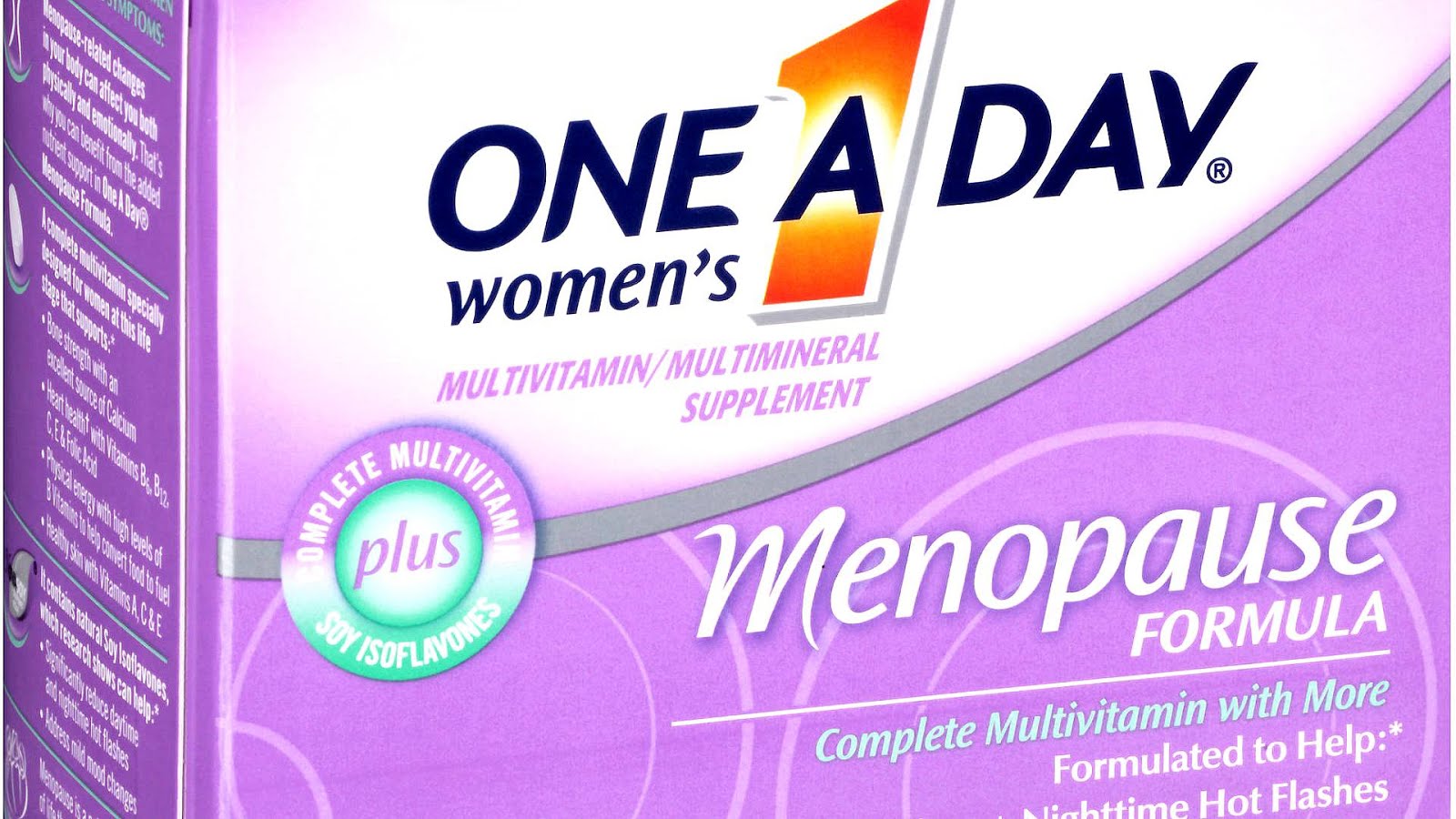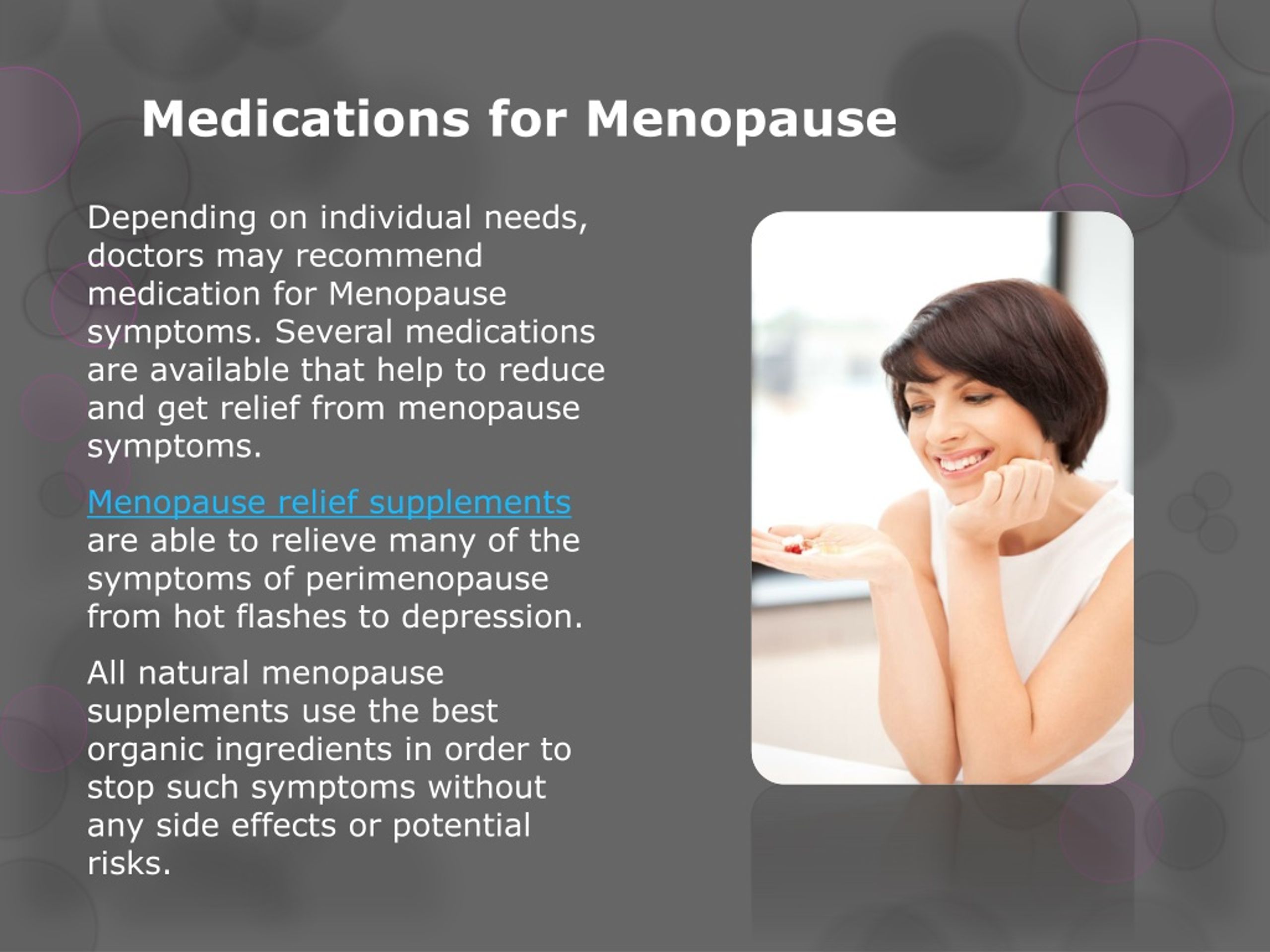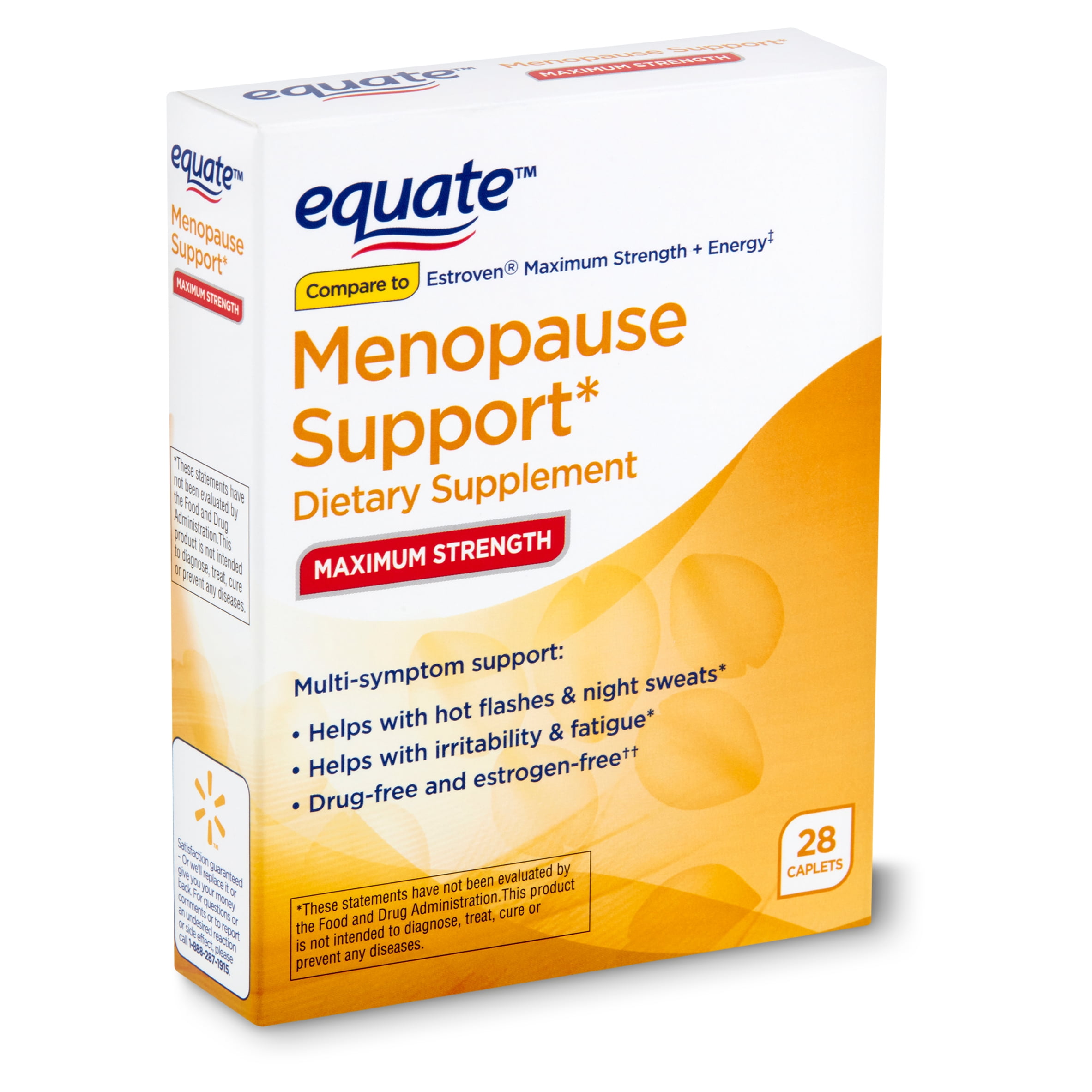Menopause drugs offer a range of options to alleviate the symptoms and health concerns associated with menopause. Understanding the different types, benefits, and potential side effects of these drugs is crucial for making informed decisions about managing this life stage.
From hormone replacement therapy to selective estrogen receptor modulators, this comprehensive guide explores the mechanisms of action, potential benefits, and considerations for using menopause drugs, empowering individuals to navigate this transition with confidence.
Overview of Menopause Drugs
Menopause drugs are medications that are used to relieve the symptoms of menopause, which is the natural decline in estrogen production that occurs in women as they age. There are two main types of menopause drugs: hormone therapy and non-hormonal therapy.
Hormone therapyreplaces the estrogen that is lost during menopause. This can help to relieve symptoms such as hot flashes, night sweats, vaginal dryness, and mood swings. Hormone therapy can be taken in a variety of forms, including pills, patches, and injections.
Non-hormonal therapydoes not contain estrogen. These medications can help to relieve some of the symptoms of menopause, such as hot flashes and night sweats. Non-hormonal therapy is often used for women who cannot take hormone therapy, such as those who have a history of breast cancer or blood clots.
Mechanism of Action
Hormone therapy works by replacing the estrogen that is lost during menopause. This can help to relieve symptoms such as hot flashes, night sweats, vaginal dryness, and mood swings. Hormone therapy can also help to prevent osteoporosis, a condition that causes bones to become weak and brittle.
Non-hormonal therapy works in a variety of ways. Some non-hormonal medications, such as antidepressants, can help to relieve hot flashes and night sweats. Other non-hormonal medications, such as calcium supplements, can help to prevent osteoporosis.
Benefits of Menopause Drugs

Menopause drugs offer a range of benefits to women experiencing the transition to menopause, including:
Improved Sleep
Estrogen and progesterone replacement therapy (HRT) can help improve sleep quality in women with menopause-related sleep disturbances. Studies have shown that HRT reduces the frequency and severity of hot flashes, night sweats, and sleep apnea, leading to improved sleep efficiency and duration.
Reduced Hot Flashes and Night Sweats
Hot flashes and night sweats are common symptoms of menopause that can significantly impact quality of life. Menopause drugs, such as selective estrogen receptor modulators (SERMs) and low-dose antidepressants, have been shown to effectively reduce the frequency and severity of these symptoms.
Improved Mood and Reduced Anxiety
Menopause can cause mood swings, anxiety, and depression. Hormone replacement therapy (HRT) has been found to improve mood and reduce anxiety symptoms in women with menopause-related mood disorders.
Prevention of Osteoporosis
Estrogen plays a crucial role in maintaining bone density. Estrogen replacement therapy (HRT) can help prevent osteoporosis, a condition that causes bones to become weak and brittle. Studies have shown that HRT can increase bone mineral density and reduce the risk of fractures in postmenopausal women.
Reduced Risk of Heart Disease
Estrogen has cardioprotective effects, including reducing cholesterol levels and improving blood vessel function. Estrogen replacement therapy (HRT) has been shown to reduce the risk of heart disease in postmenopausal women.
Side Effects of Menopause Drugs

Menopause drugs, such as hormone replacement therapy (HRT) and non-hormonal medications, can cause various side effects. Understanding these side effects is crucial for making informed decisions about treatment options.
- Hormone Replacement Therapy (HRT):HRT can lead to side effects such as breast tenderness, bloating, nausea, headaches, mood changes, and an increased risk of blood clots, stroke, and breast cancer in certain cases.
- Non-hormonal Medications:These medications, such as selective estrogen receptor modulators (SERMs) and bisphosphonates, may cause hot flashes, vaginal dryness, joint pain, and increased risk of fractures.
Managing Side Effects
Managing side effects of menopause drugs is essential for maintaining comfort and well-being during treatment. Strategies include:
- Lifestyle Changes:Regular exercise, a healthy diet, and stress management techniques can help alleviate some side effects, such as hot flashes and mood changes.
- Dosage Adjustments:Doctors may adjust the dosage or type of medication to minimize side effects.
- Alternative Therapies:Acupuncture, herbal remedies, and mind-body practices may provide additional relief from certain side effects.
- Regular Monitoring:Regular checkups and blood tests allow doctors to monitor for any potential side effects and adjust treatment as needed.
It’s important to note that not everyone experiences side effects from menopause drugs. By understanding the potential risks and discussing them with a healthcare professional, individuals can make informed decisions about their treatment options and find ways to manage any side effects that may occur.
Contraindications and Precautions
Menopause drugs are generally safe and well-tolerated, but there are certain situations where their use is not recommended or requires caution.
Contraindications
- Active or recent history of certain cancers:Menopause drugs, particularly estrogen-based therapies, may increase the risk of certain cancers, such as breast cancer and endometrial cancer. They should not be used in women with a current or recent history of these cancers.
- Active liver disease:Menopause drugs can put a strain on the liver, so they should not be used in women with active liver disease.
- Pregnancy or breastfeeding:Menopause drugs are not safe for use during pregnancy or breastfeeding.
Precautions
- Blood clots:Menopause drugs, particularly estrogen-based therapies, may increase the risk of blood clots. Women with a history of blood clots or a family history of blood clotting disorders should use these drugs with caution.
- Heart disease:Menopause drugs may increase the risk of heart disease in some women, especially those who smoke or have other risk factors for heart disease.
- Stroke:Menopause drugs may increase the risk of stroke in some women, especially those who have other risk factors for stroke, such as high blood pressure or diabetes.
- Gallbladder disease:Menopause drugs may increase the risk of gallbladder disease in some women.
- Mental health conditions:Menopause drugs may worsen mental health conditions in some women, such as depression or anxiety.
It is important for women considering menopause drugs to discuss the potential benefits and risks with their healthcare provider to determine if these drugs are right for them.
Dosing and Administration: Menopause Drugs
Menopause drugs are typically administered orally, either as a daily pill or as a monthly injection. The specific dosage and administration schedule will vary depending on the type of drug being used.
For hormone replacement therapy (HRT), the dosage is typically started at a low level and gradually increased until the desired effect is achieved. This helps to minimize the risk of side effects.
For other types of menopause drugs, such as selective estrogen receptor modulators (SERMs) and non-steroidal anti-inflammatory drugs (NSAIDs), the dosage is usually fixed.
Adjusting Dosage
The dosage of menopause drugs may need to be adjusted based on individual needs. For example, if a woman experiences side effects from HRT, the dosage may need to be reduced. Conversely, if a woman is not experiencing the desired effects from HRT, the dosage may need to be increased.
It is important to follow the doctor’s instructions carefully when taking menopause drugs. Taking too much of a menopause drug can increase the risk of side effects, while taking too little may not be effective in treating menopause symptoms.
Patient Education
Menopause is a natural stage in a woman’s life that marks the end of her reproductive years. It can cause a variety of symptoms, including hot flashes, night sweats, mood swings, and vaginal dryness. Menopause drugs can help to relieve these symptoms and improve your quality of life.
There are two main types of menopause drugs: hormone therapy (HT) and non-hormonal therapy. HT replaces the hormones that your body stops producing during menopause. Non-hormonal therapy works by other means to relieve menopause symptoms.
Benefits of Menopause Drugs
- Relieve hot flashes and night sweats
- Improve mood swings
- Reduce vaginal dryness
- Prevent osteoporosis
- Reduce the risk of heart disease
Side Effects of Menopause Drugs
- Nausea
- Vomiting
- Headaches
- Breast tenderness
- Bloating
- Weight gain
- Increased risk of blood clots
- Increased risk of stroke
- Increased risk of breast cancer
Proper Use of Menopause Drugs
Menopause drugs are most effective when they are taken as directed by your doctor. Be sure to tell your doctor about all of your medical conditions and medications before starting menopause drug therapy.
Menopause drugs should be taken for the shortest amount of time possible to relieve your symptoms. Your doctor will monitor your progress and adjust your dosage as needed.
If you experience any side effects from menopause drugs, be sure to talk to your doctor. They may be able to lower your dosage or switch you to a different medication.
Case Studies

Menopause drugs have been widely used to alleviate the symptoms associated with menopause. Here are a few case studies and patient testimonials that demonstrate the effectiveness and outcomes of using these medications:
Patient A
- Symptoms:Hot flashes, night sweats, vaginal dryness, mood swings
- Treatment:Hormone replacement therapy (HRT) with estrogen and progestin
- Outcome:Significant reduction in hot flashes and night sweats within two weeks of starting treatment. Improved mood and vaginal dryness resolved over time.
Patient B
- Symptoms:Osteoporosis
- Treatment:Bisphosphonates
- Outcome:Increased bone density and reduced risk of fractures after one year of treatment.
These case studies highlight the potential benefits of menopause drugs in managing various symptoms and conditions associated with menopause. It’s important to note that individual responses to treatment may vary, and it’s crucial to consult with a healthcare professional to determine the most appropriate treatment option based on individual needs and circumstances.
Future Directions
The future of menopause drug development holds promising advancements. Researchers are exploring novel therapies and refining existing treatments to address the diverse needs of menopausal women.
One key area of focus is the development of non-hormonal therapies. These treatments aim to alleviate menopause symptoms without the potential side effects associated with hormone replacement therapy (HRT). Selective estrogen receptor modulators (SERMs) and selective estrogen receptor downregulators (SERDs) are promising candidates in this category.
Emerging Therapies
- Non-hormonal therapies:SERMs, SERDs, and other non-hormonal approaches offer alternatives to HRT.
- Combination therapies:Combining different drug classes may enhance efficacy and reduce side effects.
- Personalized medicine:Tailoring treatments based on individual genetic and lifestyle factors.
Potential Advancements
- Improved delivery systems:Novel drug delivery methods, such as transdermal patches or implants, may enhance bioavailability and reduce side effects.
- Targeted therapies:Drugs designed to specifically target specific menopausal symptoms, such as hot flashes or mood changes.
- Long-acting formulations:Extended-release medications may provide sustained symptom relief with fewer dosing intervals.
Questions Often Asked
What are the different types of menopause drugs available?
Menopause drugs include hormone replacement therapy (HRT), selective estrogen receptor modulators (SERMs), and other medications that target specific symptoms.
What are the benefits of using menopause drugs?
Menopause drugs can help alleviate hot flashes, night sweats, mood swings, vaginal dryness, and other symptoms associated with menopause.
What are the potential side effects of menopause drugs?
Potential side effects vary depending on the type of drug used and may include nausea, breast tenderness, headaches, and increased risk of blood clots.